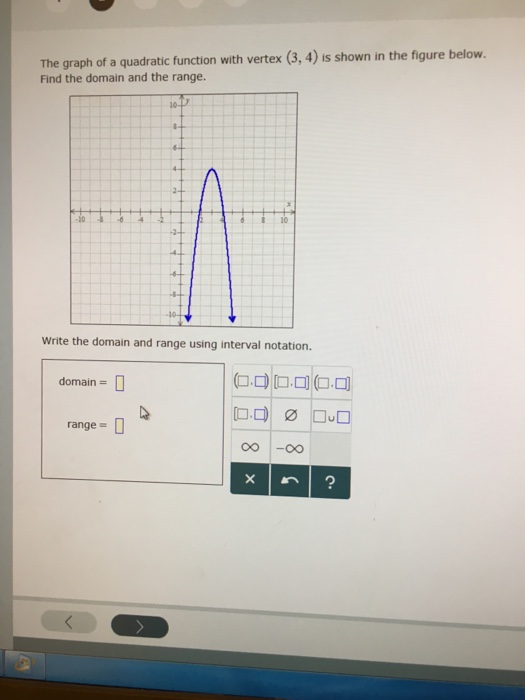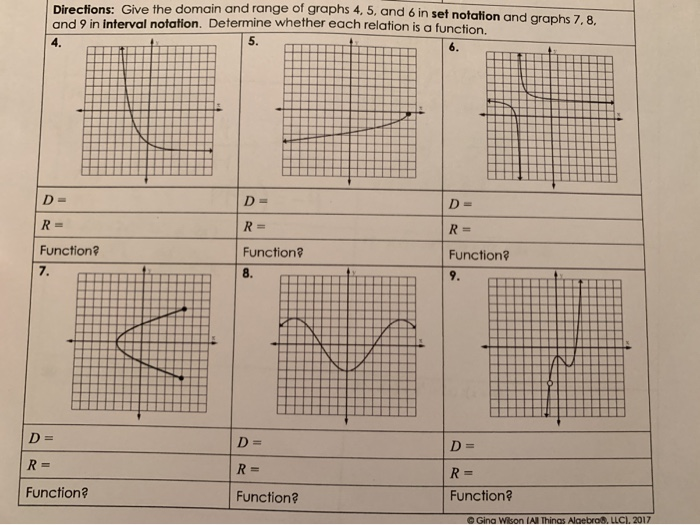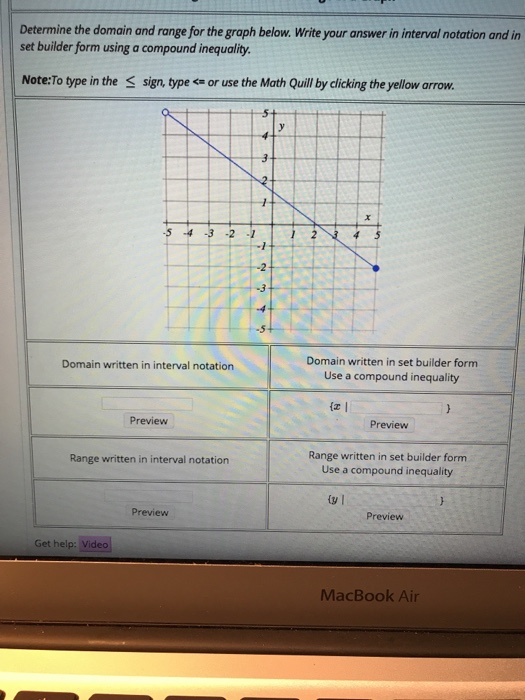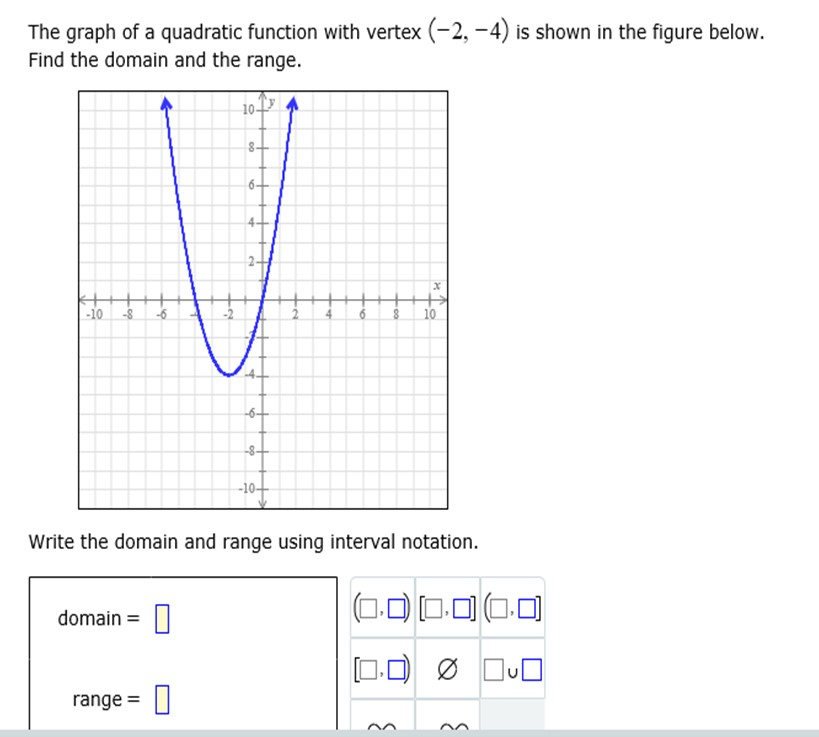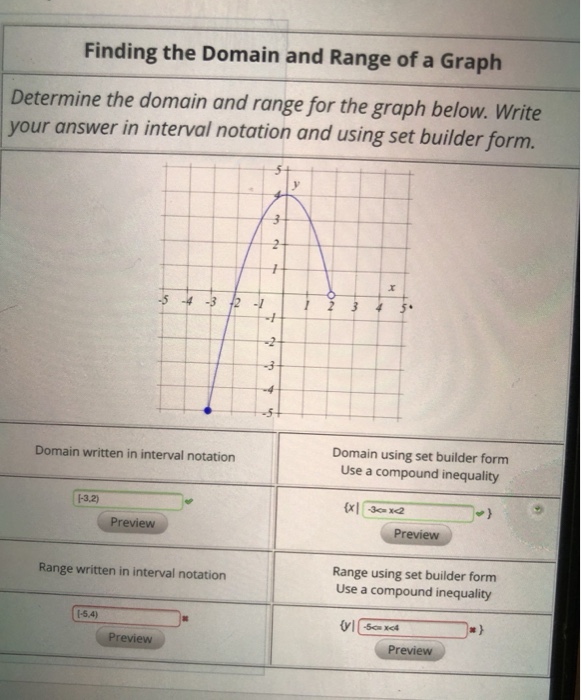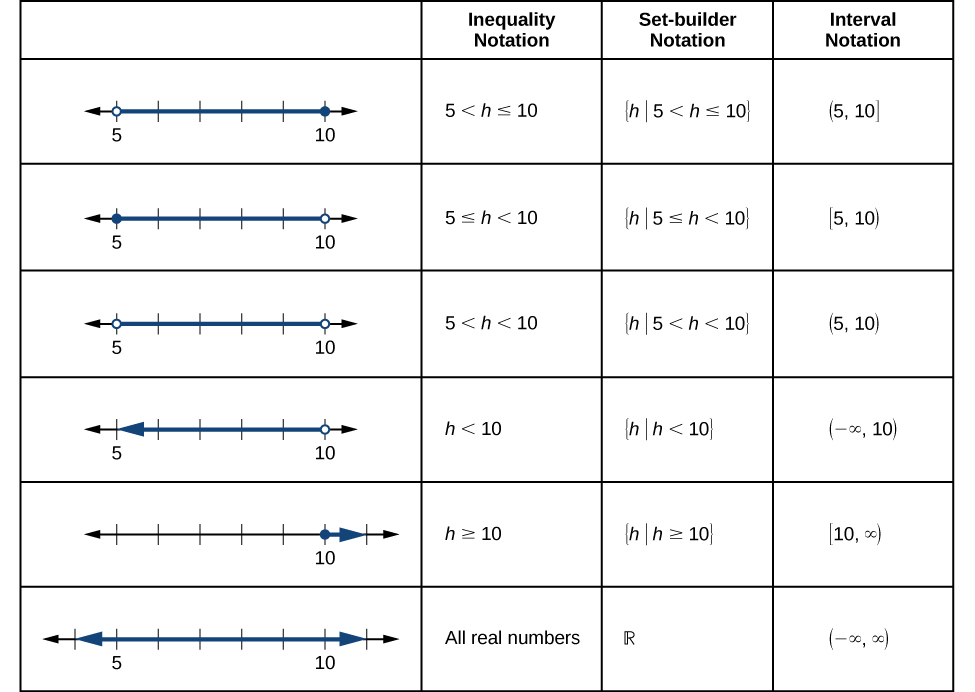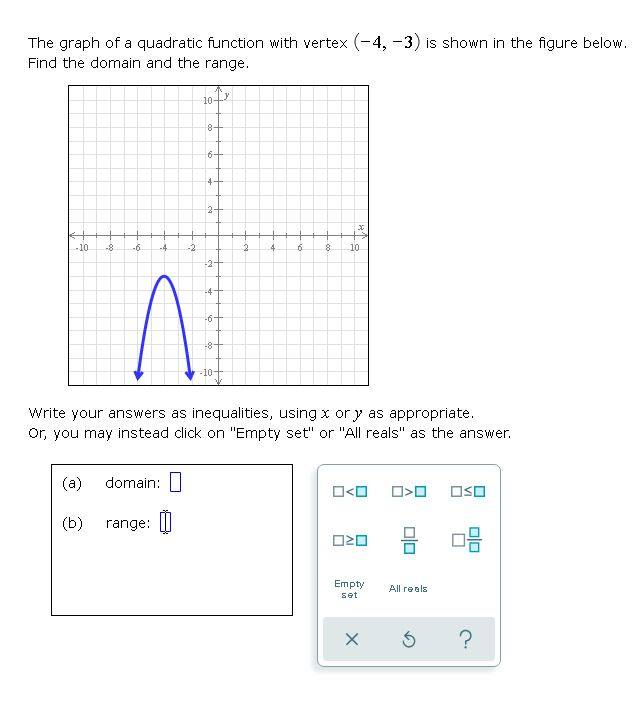Another way to identify the domain and range of functions is by using graphs.
Find the domain and range of the graphs below using set notation and interval notation.
The range is the set of possible output values which are shown on the latex y latex axis.
At the left end of each interval use with each end value to be included in the set solid dot or for each excluded end value open dot.
The range is the set of possible output values which are shown on the y axis.
Because the domain refers to the set of possible input values the domain of a graph consists of all the input values shown on the x axis.
Given a line graph describe the set of values using interval notation.
The part on the right is defined for x 6 and x 6.
Keep in mind.
Another way to identify the domain and range of functions is by using graphs.
At the left end of each interval use with each end value to be included in the set solid dot or for each excluded end value open dot.
Given a function in function notation form identify the domain and range using set notation interval notation or a verbal description as appropriate.
Identify the intervals to be included in the set by determining where the heavy line overlays the real line.
At the left end of each interval use with each end value to be included in the set solid dot or for each excluded end value open dot.
Given a line graph describe the set of values using interval notation.
Write the domain of the graph of the function shown below using interval notation solution to example 8 the graph is made up of three parts.
Because the domain refers to the set of possible input values the domain of a graph consists of all the input values shown on the latex x latex axis.
Finding domain and range from graphs.
This video introduces how to read and write interval and set notation.
The left part is defined for all values of x between 4 and 2.
The part in the center is defined on the interval x 0 and x 4.
Given a line graph describe the set of values using interval notation.
Notation plays an important role in mathematics.
Identify the intervals to be included in the set by determining where the heavy line overlays the real line.
